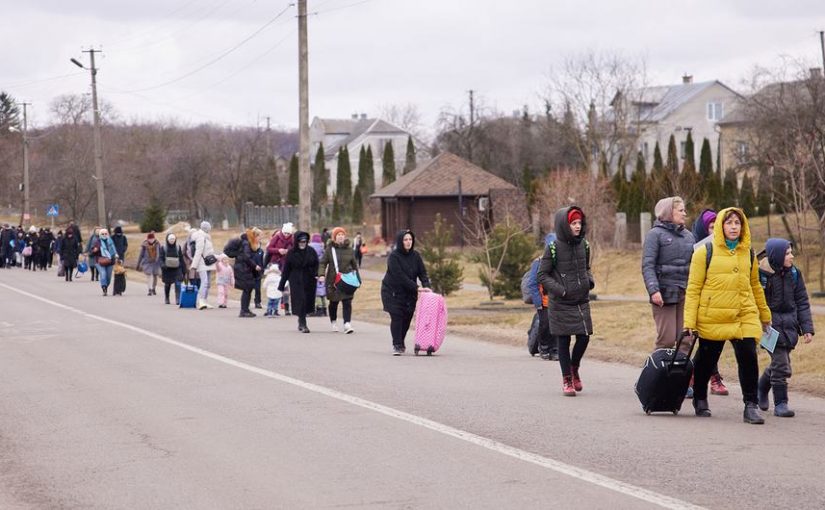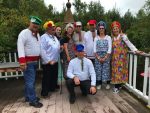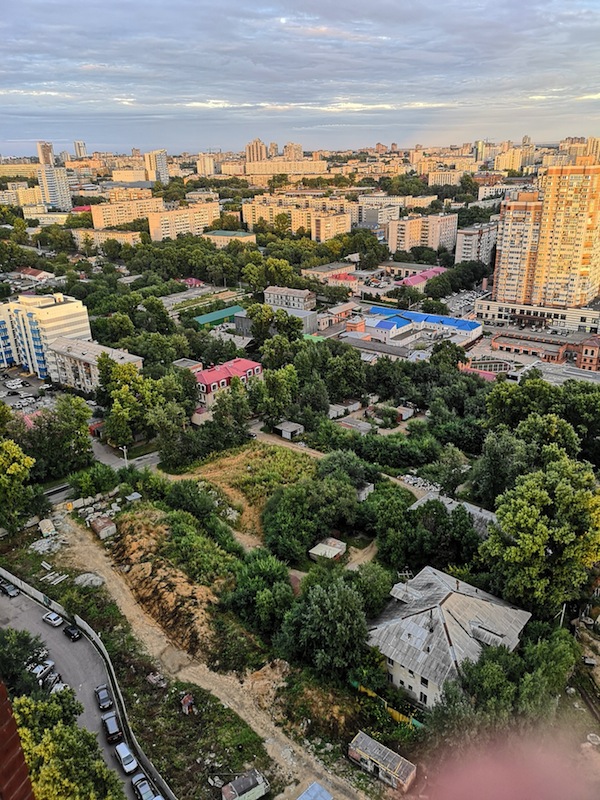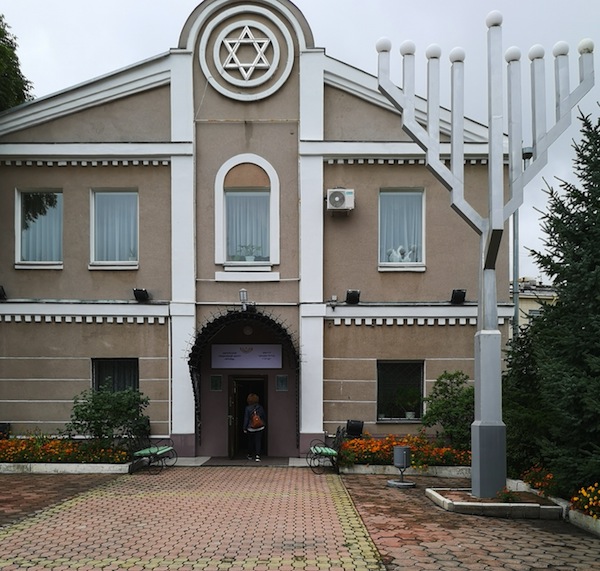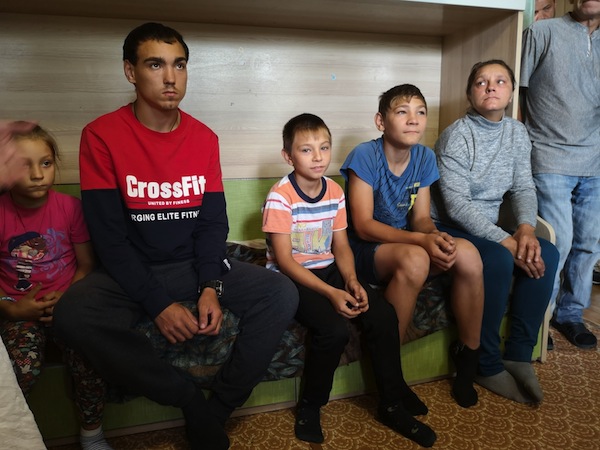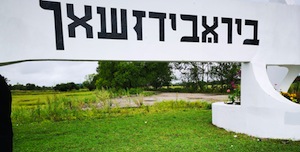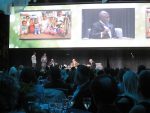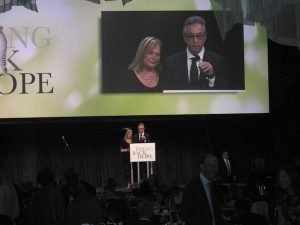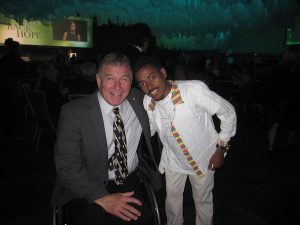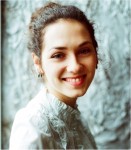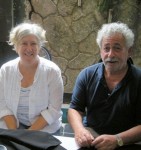On March 5, in western Ukraine, children and families make their way to the border to cross into Poland. (photo © UNICEF/Viktor Moskaliuk)
A friend described to me once what Warsaw looked like in the aftermath of the Second World War. A small boy then, he remembered vividly the ripped apartment buildings, whole sides of buildings missing. When you raised your head, he said, you could see a bed up there, one leg hanging over the precipice, the chimney, a chair stuck in half fall. The lives turned into ruins and exposed.
The “noble” war, as Russian President Vladimir Putin calls it, has killed thousands. Other thousands have been taken into filtration camps by Russians. The war has uprooted the lives of millions. It has separated wives from husbands, children from fathers. It has laid bare what is usually concealed from the eyes of a stranger: human attachments and loves, support for one another and acts of kindness. But also, the seismic faults running through so many families; their discontents, their arguments, and the way they cope with them in the time of crises.
Inadvertently, I became privy to the lives of many simply because I happened to be there at the time of their great vulnerability and need. Those I met (and, with rare exceptions, these were women with children) were going through the horrors and desolation of war. All, without exception, were traumatized. All needed practical help, advice, information and, above all, empathy.
But what they also needed, I discovered, was to talk about what they had gone through. That need was spontaneous and raw. They broke into stories easily and without invitation on my part. Each story was different, yet many followed the similar pattern: destruction and loss of property or homes; weeks in basements with scarce water, food supplies and electricity; the howl of air raid sirens; separation from loved ones and concern about their well-being; screams of traumatized children; and, then, finally evacuation, finally escape, over many days. Escape on foot, by trains, buses or sometimes cars, with detours necessitated by rockets and missiles; crossing rivers on boats where bridges were blown up.
I heard repeated gratitude to Ukrainian volunteers who facilitated the escapes, relaying families from one safe place to another; informing about the dangers on the way and how to bypass them. I heard stories of churches that sheltered families overnight; of people harbouring strangers in their homes; of volunteers who organized food that awaited fleeing families at different points of their long and hazardous journey to safety. I learned a new word – humanitarka, meaning clothing (and perhaps food) that poured into Ukraine from the West as humanitarian aid.
And I heard stories of the brutality of Russian soldiers towards civilians. I heard stories of looting, torture and rape. I heard stories of Russian soldiers leaving villages and shooting in their wake every cow, every chicken, so that the owners would be left with nothing; gratuitously smashing all the preservatives Ukrainians traditionally prepare for winter. I heard how Russian soldiers pretended they would allow villagers to run to safety, only to shoot them in their legs, and finish them off later like hunted animals. I heard stories of booby-trapped corpses, of Russians abandoning their dead.
In the two-and-a-half weeks I volunteered with the Joint Distribution Committee (JDC) at a border crossing and in a refugee shelter several kilometres away from the Polish border with Ukraine, I met people of all walks of life – I met the Ukrainian Nation.
I met a grandmother who escaped missiles with her six grandchildren and made it to Poland while the parents of the children had perished.
I met a man, a welder, looking after his old and infirm mother. They couldn’t possibly live with any family, the man explained, because his mother became psychotic and incontinent, and he regularly had to clean up after her. The welder was now trying to bring to Poland his former wife with her new husband and their three children, one of whom was his.
I met 60 elderly Baptists from Zaporizhzhia who were on the way to Amsterdam, where a sister Baptist church was going to shelter them. Zaporizhshia is the site of the largest atomic plant in Europe and it had been overtaken by Russian soldiers. It’s the city where my relatives live. Talking to these refugees, I realized that my aunt had been concealing the truth from me all along: the rockets are falling 10 kilometres away from the city.
I discovered that the most painful subject and the last thing that came up in conversations was the fact that women had had to leave their loved ones behind. The worry for their soldier sons and husbands, their parents, grandparents and siblings, was a deeply hidden, yet constant, heartbreak. It was a breaking point for many. I will not forget those eyes, dozens and dozens of women’s eyes: blue, grey, greenish; eyes magnified by tears at the thought of the separation from loved ones. When a collective image of Ukraine comes to my mind, it’s women’s eyes. Embarrassed to cry in front of me, a stranger, they tried to look away. The older sister would often say to the younger, “Enough already, just stop it!” while breaking into tears herself.
Another move that caused tears was my offering of money to refugees, the generous donations that I had received while I was still in Vancouver. In Canada, I had packed lots of envelopes to put the money into, for a civilized handout. How naïve I was! In the chaos of a refugee centre, it was quickly handing over money from hands to hands. A scared look and the initial refusal to accept was universal. I had to come up with some strategy to overcome the mutual embarrassment. “This is not my money,” I would say. “This is from Canadian friends, people like you. Canadians care about you. They want to help you. But they can’t be here. They asked me to do it for them. Please take it.” A grateful look. Tears. A hug.
The refugee centre was a temporary shelter. Refugees could spend several nights there and then move on: to some city, some country.
The vast majority of the refugees I met were determined to return home once the war was over. But they had made it to Poland and many would have liked to stay there while the war was raging. Poland was familiar; it has cultural and historical ties with Ukraine, especially with the western part of Ukraine.
In the post-Soviet times, before this war, thousands of Ukrainians had gone to Poland for work: a member of the European Union, Polish standards of living and salaries were higher than Ukrainian. Besides, the Polish language was closer to Ukrainian than any others of the countries that came forward to help. It would be manageable somehow; it could be learned, if not by everybody, at least by the younger people. But Poland couldn’t take in any more refugees. Posters in the refugee centre read in Ukrainian: “We are happy to welcome you, but our cities are full. Our small rural communities are cozy and peaceful. Consider moving there.” But even small villages were full and couldn’t afford to welcome any more people.
The women who arrived at the refugee centre accepted with resignation the fact that they would have to be on the move again. The way they decided where to go next somewhat surprised me: it wasn’t on the basis of a better financial package or living conditions. Rather, the criteria was proximity to Ukraine. The first question that women asked me about various countries also seemed unusual: they wanted to know if they would be able to find work quickly. I would talk about the hardships they had just endured; the necessity to rest, to take a break, to look around first. But that didn’t register. They have worked all their lives, they said. They are used to work. Living for free at somebody’s expenses was a no-no.
Most of the Ukrainian women I met were mild-mannered and perhaps less assertive, less forceful, compared to North American ones. All were both surprised and grateful for the help and goodwill they’d seen from so many. They couldn’t praise enough what the Poles did for them. They were deeply touched by the smallest acts of kindness. And none took the help for granted. “If this happened to other nations and we, Ukrainians, would have to do this for somebody else, would we have done the same? I am not sure,” said one woman.
Few discussed the wider political implications of the war. They didn’t talk about Putin or his goals, or the future of their country. Their concerns were more practical and immediate: food, clothing and the well-being of their children, their elderly mothers.
But I remember one woman, Nina, and her fiery indignation: “What have we done to Russians? What do they want from us? We didn’t bother anybody. Nazi? What Nazi? We live peacefully with our neighbours: gypsies, Jews, Ukrainians, Russians. We all speak Ukrainian and Russian!”
Another, older, woman, while waiting for the bus to Germany, was even more emphatic: “You tell me why Russians believe Putin’s propaganda? Why do they have the mentality of slaves? We Ukrainians may have our problems. But we’re free people. Russians are slaves! Slaves.” (The word “slave” in Russian usage has strongly negative connotations, implying the qualities of subservience, fear, and the desire to please the master.)
I thought about these words. I don’t have an answer to her question. Nor do I have any convincing arguments against her harsh indictment.
* * *
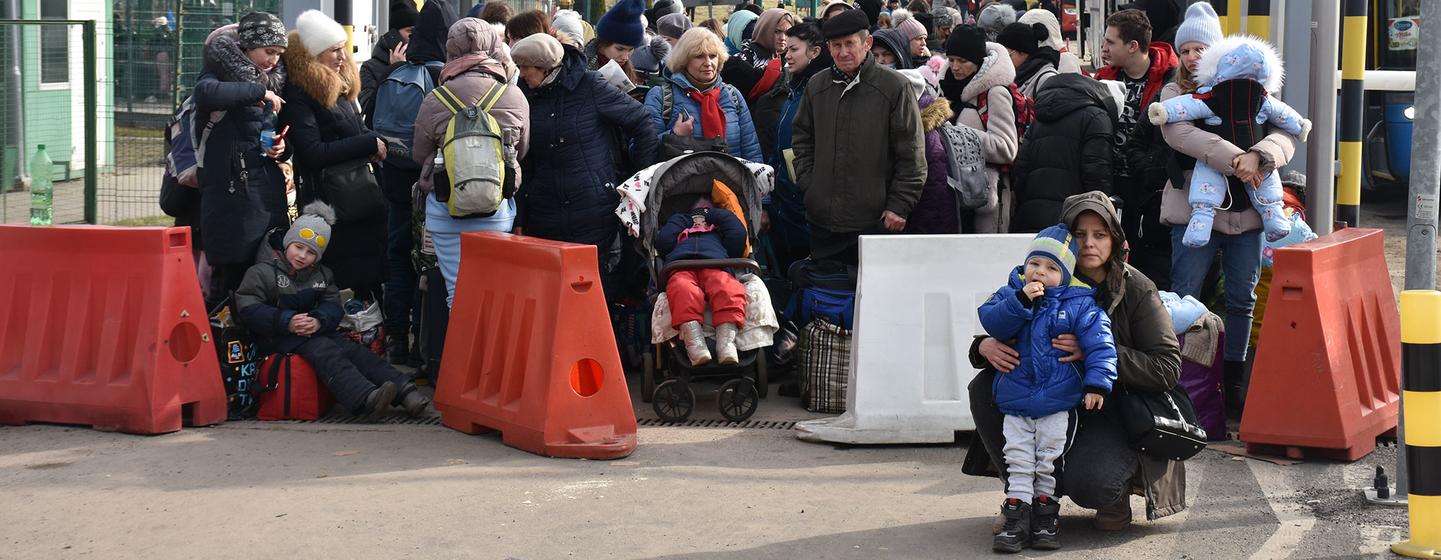
I’m still trying to comprehend and, in some way, come to terms with what I experienced over 16 days. It began when I flew into Warsaw from Vancouver and was picked up at the airport by a JDC representative. Together with two volunteers from the United States, we were driven to the Polish-Ukrainian border, where a small group of Holocaust survivors was to arrive. The drive took four to five hours and, by the time we got to the border, it was totally dark and bitterly cold.
Arrangements had been made with Germany that it would take in the Holocaust survivors. The German Red Cross ambulance bus had traveled 13 hours. I learned later that everybody in the ambulance was a volunteer – the driver was a history teacher, the three women were professional nurses donating hours and hours of service.
I wondered how it was possible to find a few Holocaust survivors in a warring country and bring them to safety. It turned out that the Jewish Agency had used the lists of survivors receiving financial assistance before the war to contact and evacuate them.
What struck me most at the time was the sight of several empty white canvass stretchers on the dirt next to the bus. It started to drizzle; the Germans stacked the stretchers and covered them with a tarp. The stretchers, soon to be filled with people, were a menacing sign of the proximity of war, invisible yet close. When the bus from Ukraine finally arrived, one body was carried out on a stretcher. So emaciated and skeletal was this body that, for a moment, I wondered why they were transporting a corpse with the living. When I looked closer, I saw that it was a woman, wounded and emaciated to an extreme degree but alive. For the next while, the Germans administered an IV to the seemingly unresponsive body. I overheard a conversation between two nurses: one wondering if the woman would be able to make it to Germany. They asked her a question – I translated – was she in pain? The woman shook her head. The Germans proceeded to take care of others.
Six other women got off the bus with some help from the Red Cross people and us.
One lady clutched her battered black purse that was overflowing with some papers. She refused to board the ambulance bus. A nurse and I held her up against the bitter wind, while she told us that her son was waiting for her here, around the corner, that he was going to pick her up. We finally figured out what she meant: her son was in Germany and she believed that she had arrived to Germany, not Poland. Efforts were made to contact her son right there, and somebody got him on the phone or they said they did, I’m not sure. But somehow the matter was settled: the woman agreed to board the ambulance.
None of these old and frail women escaped with any possessions to speak of: a handbag, a sack, was all they managed to take. But that little something was now the focus of their attention; a symbol of their lost nests, and they feverishly clung to it.
One woman finally settled on a stretcher inside the ambulance, her purse sitting on top of her chest. Another plowed through her handbag in search of a watch, the only item left from her late husband, she said; she couldn’t find it, believed it was stolen and was distraught.
Yet another was worried about her frequent need to urinate. A nurse and I led her to the blue booths on the side of the road. She whispered in my ear, asking if I could take her alone: the nurse had accompanied her to the booth before; it was too embarrassing to need to go again.
None of the Holocaust survivors seemed to be clear about what was going on and where they were going next. Finding out that there would be another 13 hours of travel to Frankfurt on top of the hours of travel behind her, one of the passengers refused to go. “I won’t be able to take it,” she said. “I lived through German occupation once and now it’s the Russians. I’ve had enough.”
The last to arrive (I think in a separate bus) was a man. With nothing in his hands, he seemed to be unperturbed by the lack of any worldly possessions. He came from Kyiv. “I didn’t want to leave. But I’m an invalid. I live on the third floor and can’t go downstairs into the basement during the air raids,” he explained. “My son was worried and decided to pack me off to Germany. One way or the other, what difference does it make for me after all I’ve lived through? I remember the Germans. They didn’t do to us what the Russians are doing.”
For almost anyone, this would be the most stunning statement. The Nazis, the Germans, and their allies, committed terrible atrocities during the Second World War (“the Great Patriotic War,” as it was officially called in the Soviet Union, where I grew up). They were inhuman in their cruelty; they were beasts. I still remember the games of my childhood that we played in our yards: the good guys were Russians, the bad ones were Nazis, the Fritzes, as we called them.
I thought about it as I was watched the German nurses taking care, with utmost attention and patience, of the elderly Ukrainian Jews, the Holocaust survivors, escaping Russian atrocities in the 21st century.
Marina Sonkina is a fiction writer, and teaches in the Liberal Arts Program 55+ at Simon Fraser University. She immigrated to Canada with her two then-young sons, as the Soviet Union was breaking up. When Russia attacked Ukraine, she applied as a volunteer with the Jewish Joint Distribution Committee. She arrived in Poland early this month and was a frontline responder for 16 days, offering refugees medical and psychological support.

